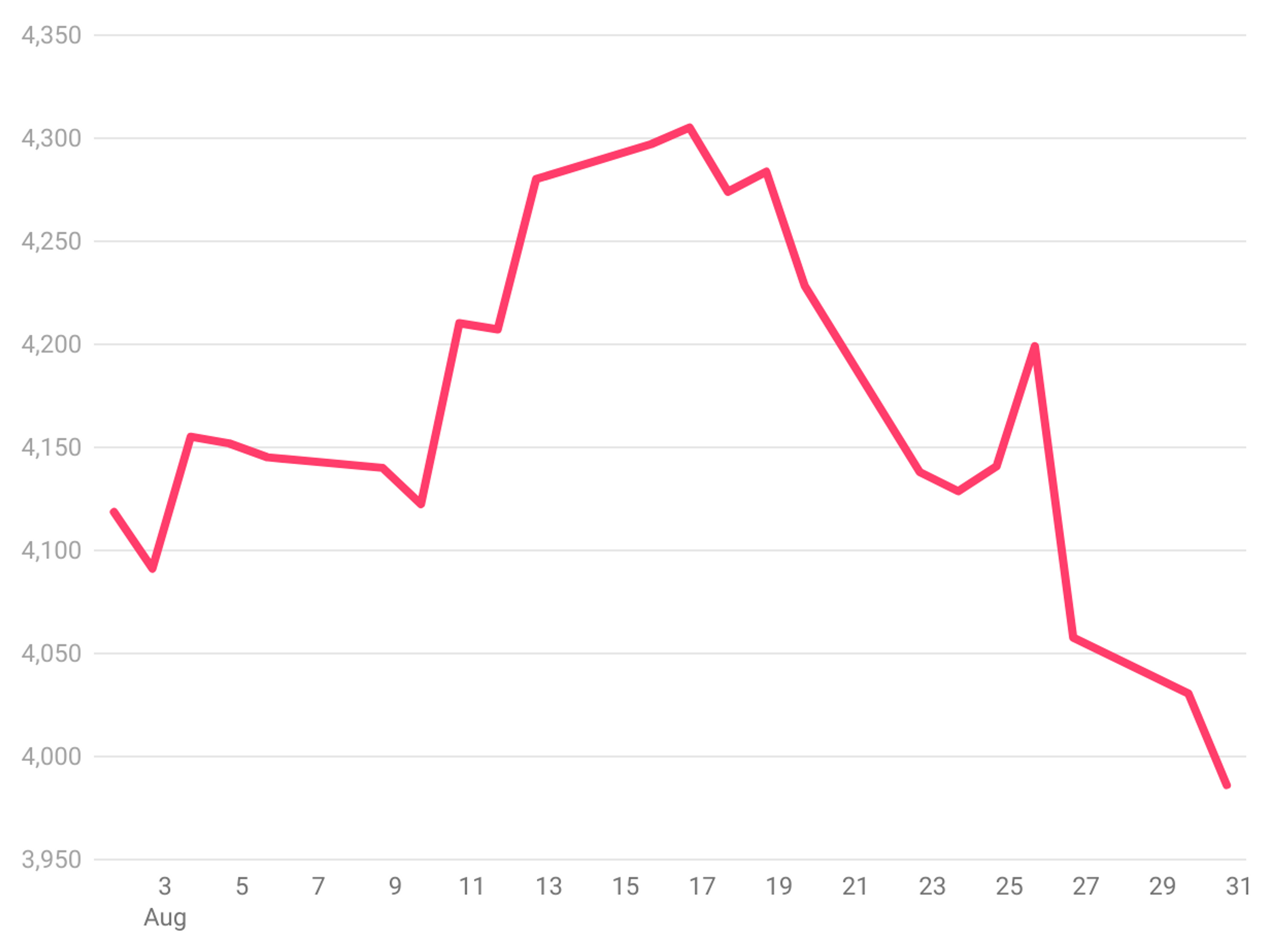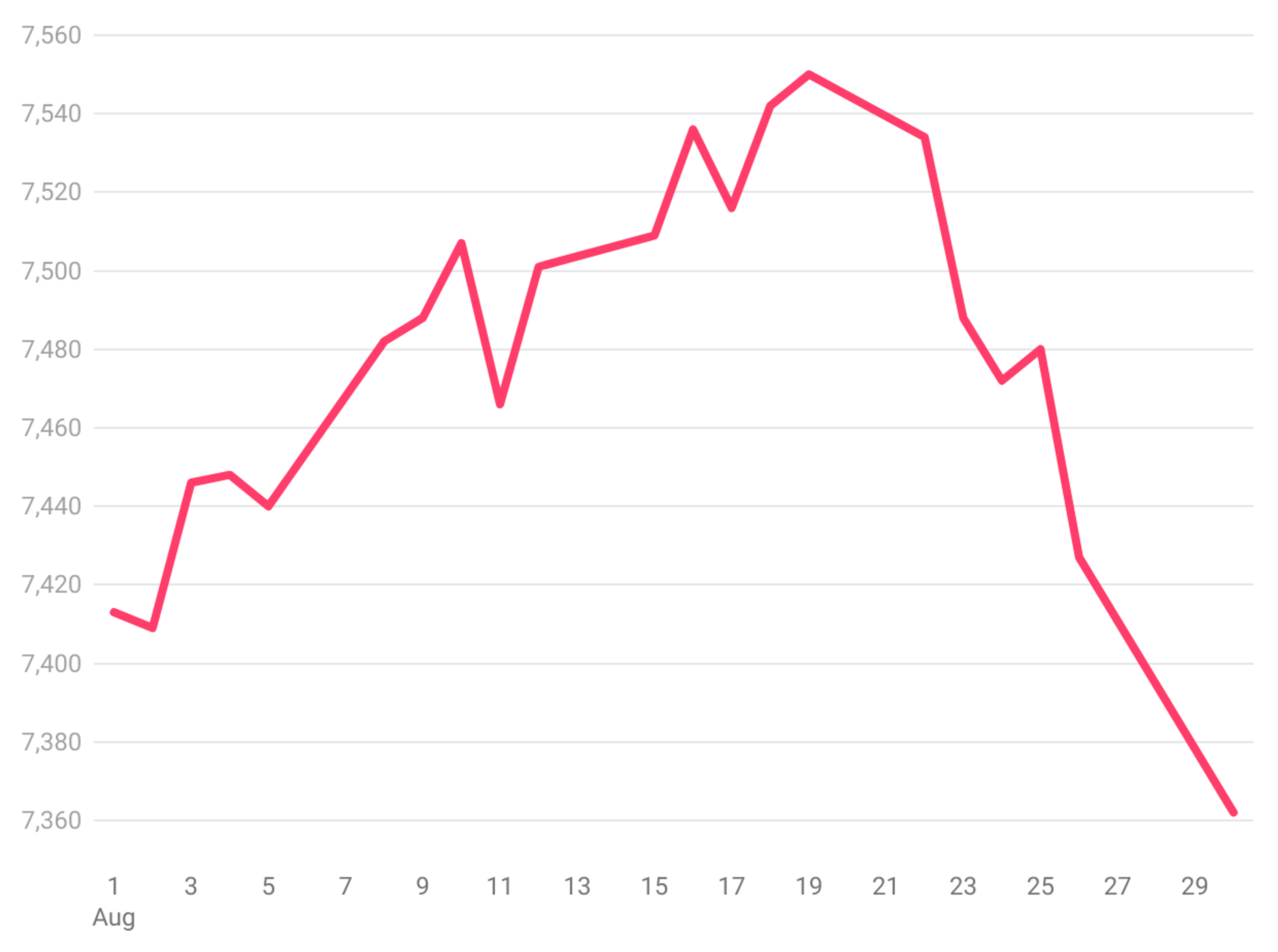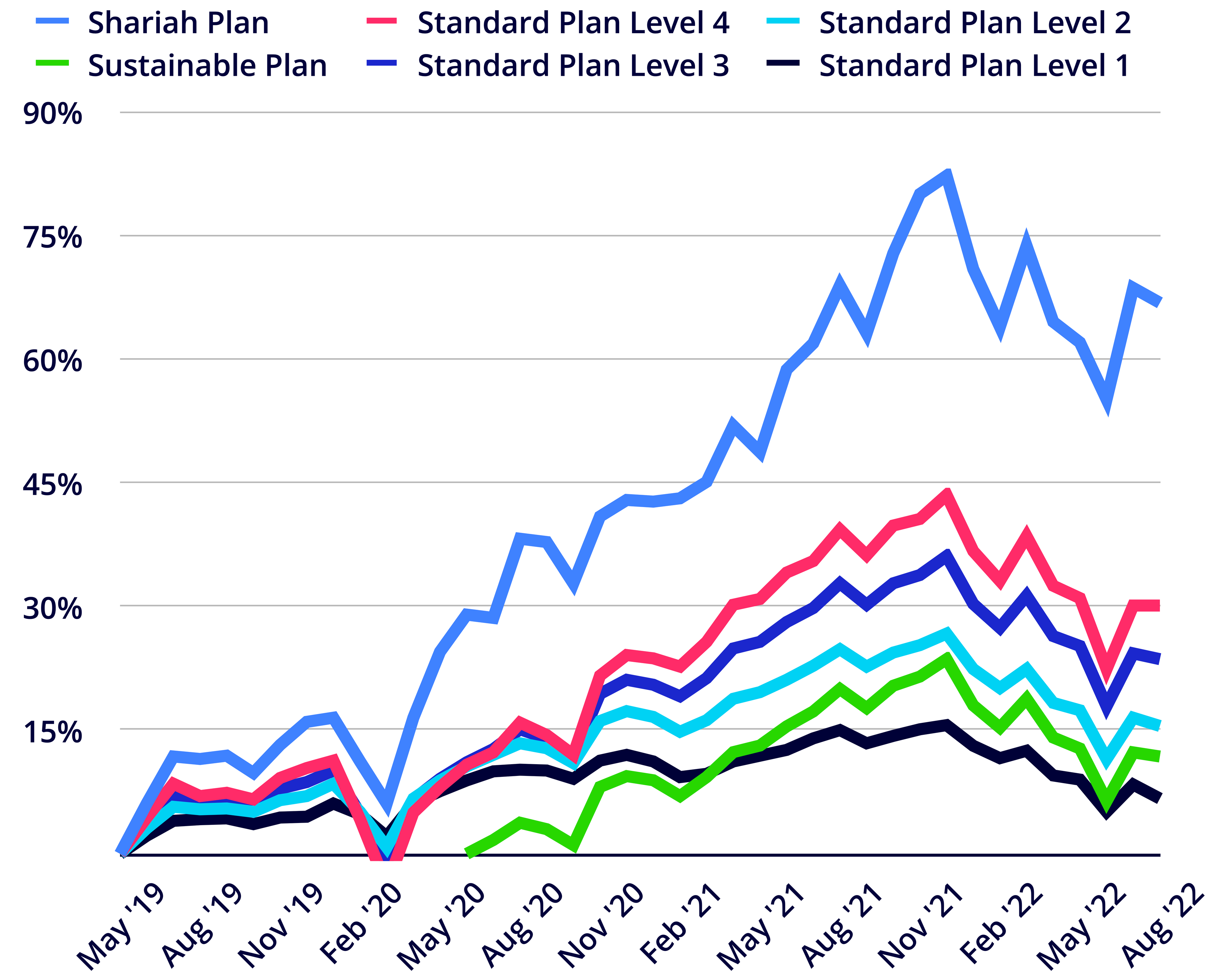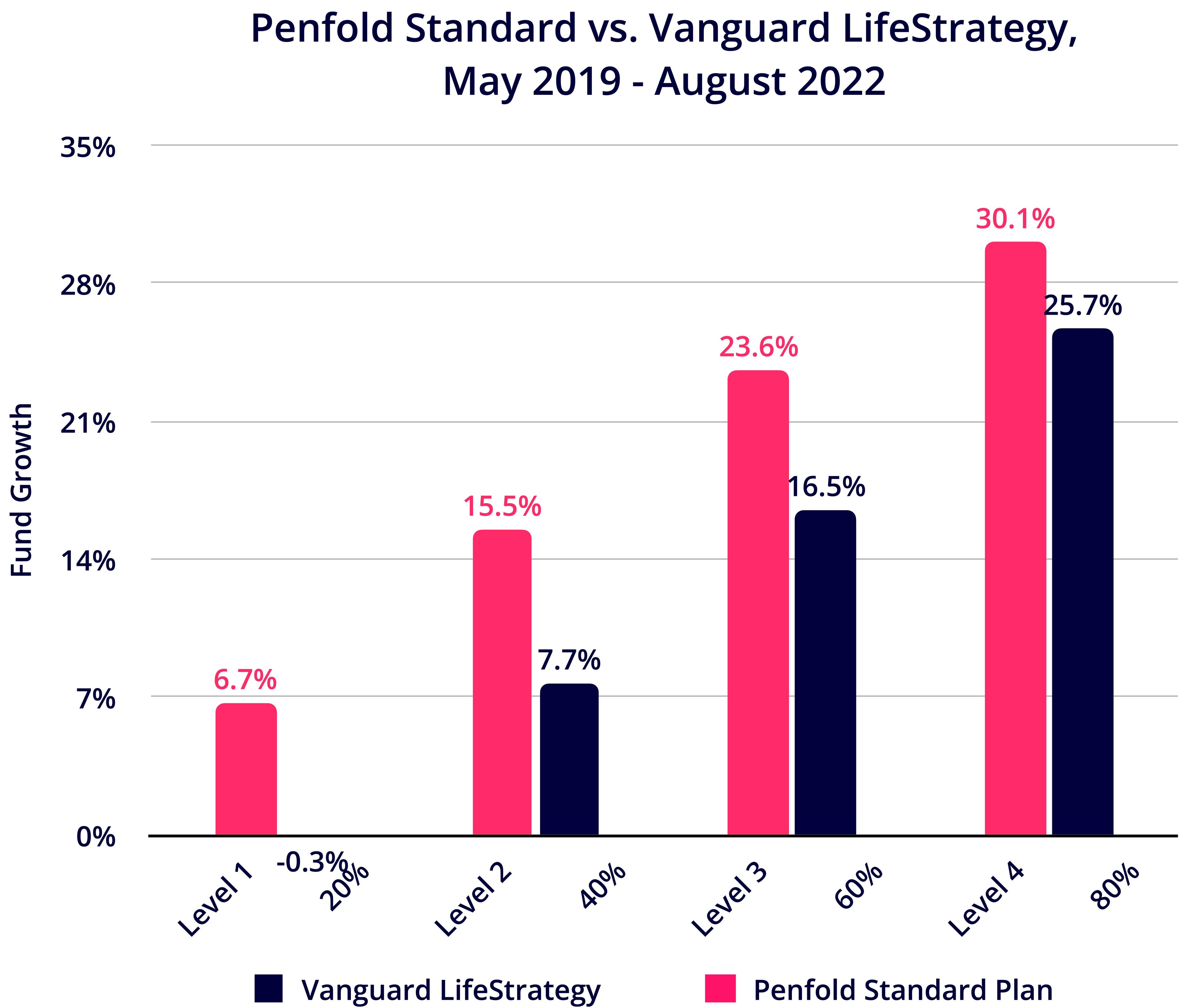Pension performance update: August 2022
- By
- Murray Humphrey

After a more positive update last month, August unfortunately saw investment markets give up much of the gains that were made in July.
The reasons for this are familiar - inflation, caused by supply chain issues, the war in Ukraine and the looming energy price cap hike, which means that investors are feeling less confident about the economy in the near future.
July briefly offered some light at the end of the tunnel as chairman of the Federal Reserve (the US central bank) Jerome Powell hinted at slowing the pace of interest rate hikes.
However, as the reality facing global markets hit, particularly in Europe, the unscheduled shutdown of the Russian Nordstream 1 gas pipeline compounded investor fears.
Here's what happened in investment markets in August.
A look at the markets
First, let’s take a quick look at how stock markets performed more broadly. Last month the S&P 500, an index combining the value of the 500 most valuable companies in the US, slid - down 3.2% in August. Since the start of the year, the S&P 500 is now down 15.4%.
S&P 500

Source: Google
As a large portion of our pension plans invest in North American companies, the S&P 500 provides a fairly reliable indication of how our plans have performed.
Of course, it’s worth remembering that all Penfold’s plans are diversified - to help protect our savers from market falls.
Your pension also invests in different commodities all over the globe, meaning the price of the S&P 500 won’t necessarily be a 1-to-1 correlation with your pension’s value.
In the UK, the FTSE 100, (the top 100 companies in the UK) ended up down by 0.68% - after showing more tentative signs of growth at the start of the month. The FTSE 100 is now down 1.9% since the start of the year.
FTSE 100

Source: Google
This dip can again be attributed to continued inflation, as well as the declining value of the pound as a currency. As only 3.75%-12.5% of Penfold’s plans comprise of UK equities (depending on the plan you picked), the FTSE’s value has less of a substantial impact on your pension’s performance.
Why have markets been so poor in 2022?
The biggest issue affecting investments in August, and for much of the year, is inflation. The main goal of central banks and policymakers right now is to curb rising inflation so that people can still afford to live comfortably.
If we don’t tackle inflation, the end result is the real value of our money decreases, meaning everyday items like food, fuel and clothes become harder and harder to afford.
To stop this trend, central banks have been raising the ‘base rate’. This is the interest rate they charge lenders (think banks and financial institutions) to borrow large amounts of money.
In the US, the latest Federal Reserve interest rate is 2.5% and is predicted to rise as high as 4% next year. On home soil, the Bank of England has raised the base rate up to 1.75%.
This means it’s more expensive for the financial service industry to borrow money, which in turn means it’s more expensive for businesses and individuals to borrow money.
Having less money flowing in the economy means people are more careful in how they spend their income. Thanks to the laws of supply and demand, this can help to reduce the amount people are willing to spend, lowering prices and slowing down inflation.
One side-effect of this inflation-tackling approach however is that it becomes more difficult for businesses to raise the capital they need to grow their company. As consumers also have less money to spend on their products, their profits can also take a hit.
For investors, if a business isn’t growing and making more profit, they aren't as valuable. So they sell off their investments in these companies, reducing the share price. And this is one reason why stock markets (and pension funds with exposure to stock markets) have been struggling as global economies seek to fight inflation.
What this means for your pension
While signs point to more volatile times for investors in the months ahead, pension savers shouldn’t panic. The largest influence on many of our pension plans is the US stock market. That’s because our pension funds invest heavily across the US and Canada to help the value of your pot grow.
The US seems to be slowly getting to grips with inflation, the most recent rate dropping to 8.5% from a high of 9.1%. Unemployment also dropped as more jobs were created than predicted - hinting at a more resilient economy.
The UK however has a slightly bleaker outlook for the near future. The coming energy price cap rise this Winter will have a big impact, with many now resigned to UK slipping into a recession.
However, if you’re many years away from retirement, you shouldn’t be too concerned about the value of your pension today. While the value of the S&P 500 has struggled this year, zooming back for perspective paints a much more reassuring picture.
Over the last 10 years, the S&P 500 is up 181%. Not bad compared to those 1.5% easy access savings accounts. This is also reflected in our pension plans. Here's the complete history of Penfold's pension plan performance.

Source: BlackRock & HSBC
As you can see, the diversification of our plans by our fund manager BlackRock (and HSBC for our Sharia plan) has meant that, despite wider markets dropping over August, the value of our pension investments has broadly remained flat, with some minor losses.
Thanks to gains in July, this means your pension hasn’t been too badly impacted by a poor month. This is due to the investments inside your pension fund being carefully selected to ensure:
- growth over the long-term
- protection against wider economic downturn
For those close to retirement, your pension may still offer an effective hedge against inflation by offering better returns, helping to protect the value of your pot as the power of the pound falls over time.
Penfold savers can also rest assured their savings are in the right place. Here's how Penfold's plans have performed compared to similar strategies offered by Vanguard (one of the UK’s largest pension providers) in the last 3 years.

Returns shown on pension plans since Penfold’s launch (May 2019)
Conclusions
After some signs of recovery in July, August sadly saw further losses in markets. As investors come to terms with the challenging times ahead, thanks to rising prices of gas and electricity, many are bracing for tough times ahead.
However, thanks to the diversification of Penfold pension plans, savers can have confidence their pension is being invested in a way that offers some protection from the worst of any recession, providing a solid platform for a strong recovery in years to come.
If you're worried about the value of your pension, check out our article on what to do if your pension value drops.
With investments, your capital is at risk. The value of your investment can go down as well as up, and you may get back less than you invest. This information should not be regarded as financial advice.

Murray Humphrey
Penfold